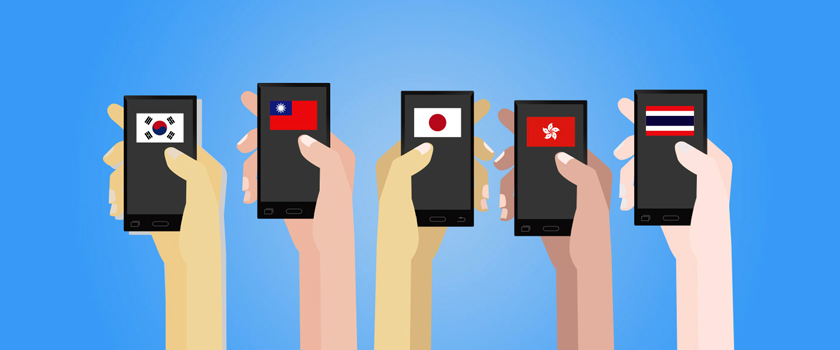Zynga, the bellwether of the social network gaming industry with a total of more than 200 million monthly active users on Facebook, has been seeking global expansion and viewing localization as a main driving force of their newest growth in the international sphere.
The very first game application of Zynga that aimed to cater for a global audience is CityVille. Unlike its predecessors, CityVille was launched in five distinct languages (English, Spanish, French, Italian and German) and acquired almost a triple number of the users of FrontierVille as of its launch day.
The reasons behind Zynga’s efforts in pushing its apps to an international front are simple yet well grounded. The more languages its games are presented in, the more users it will likely absorb, and thus the more revenue and profit it will achieve.
Listed below are the 6 reasons why you should get your Facebook apps localized too.
1. Not everyone speaks English
People speaking English, either as their mother tongue or a second language, only take up less than a twelfth of the total population of the world. Presenting your apps in the sole language of English could mean letting out the other eleven twelfths of the potential users, whereas giving your apps multiple languages support will endow them with huge competitive edge when building the presence in particular oversea markets.
2. New markets are surging, and profitable
Technology is a universal welfare of all mankind. The advancement of web technologies has not only enriched westerners’ online experience, but also put developing countries like China, Brazil, the Philippines and Vietnam in the game. When austerity has become a household topic in America since the economic recession of late 2008, the online purchasing power is shifting outwards as well.
Most of these developing countries fall “victim” to the Facebook empire too, where games and various other types of application are spread wildly among their people. Despite Facebook is blocked off in China, several local social networks of great potential have long been built up to accommodate the needs of social networking. And porting is never easier than before as long as you have specifically localized apps.
3. Their local developers suck
Among the rare companies in non-English-speaking countries that are able to develop social apps independently, nearly none of them can come out with a decent application comparable to a mainstream one. The only reason they can survive the harsh competition is their apps are presented in the local language, the needs of which are often neglected by American companies.
Don’t take for granted the language barrier is easily breakable as long as the apps are cool enough, and no foreigners will choose an English application when there is a similar one in their own language available, even if it may not perform as well.
Imagine what the business landscape would be if you can intrude into alien markets with well-localized apps that have been market-tested at home already. It is good time you gave those local developers some bitter memory.
4. Retain your existing users
There may be bilingual or even trilingual users of your apps already, but more often than not you are going to lose them over the long course due to problems with the language. This is a harsh truth, and you have to take prompt countermeasures.
The most effective approach to retaining your existing international users proves to be localizing your application items, including not only the UI and in-app descriptions, but also periodic updates and advertising communications. This is all for user stickiness against inevitable future rivalry.
5. It’s all about revenue
What’s also worth mentioning is the localization of the currency and price. Despite most online transactions are made in USD, it is not always convenient for oversea users to access a foreign currency, especially in countries where currency exchange is restricted due to many reasons.
Localization would mean much more than merely translating the descriptive words in the charge instruction, but also adopting new payment APIs and supporting game items pricing in interchangeable currencies. With local currencies being acceptable for the payment, what would be the excuses why your oversea users wouldn’t pay?
Read Also: 6 Reasons to Localize App
6. A possible turning point for underperforming apps
There are many factors behind the success or failure of each application, among which cultural recognition and acceptance is most notable. For those not performing so well in America, it is not the end of the world without assessing the possibility of them thriving in a foreign market.
Don’t be over pessimistic, or optimistic. After a series of setbacks in the home market, it requires even greater rigorousness when considering launching a multilingual version of an underperforming application. Do reevaluate the application carefully and see if there is a turning point with the localized version for particular oversea markets.
When Microsoft first came up with the concept of World Readiness and i18n, they had laid pioneering groundwork for the localization of software applications. Now with the Internet businesses aiming at a global audience and social networking gaining huge gravity, it is good time that both large and small players in the industry started practicing the theory for their own interest and catering for users from all across the world









